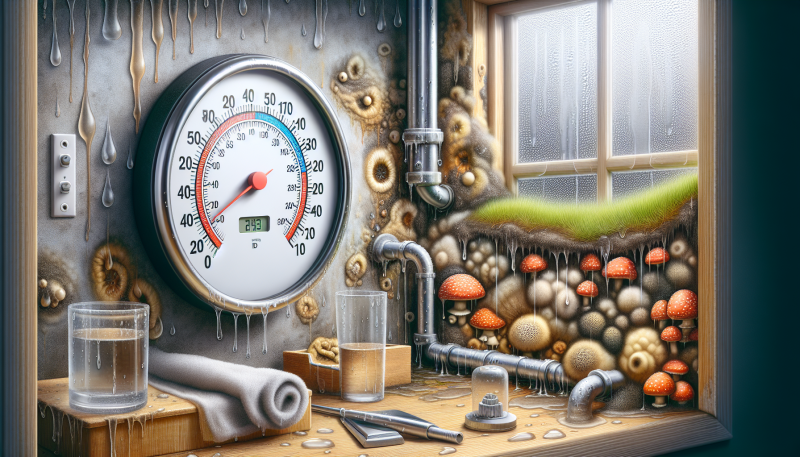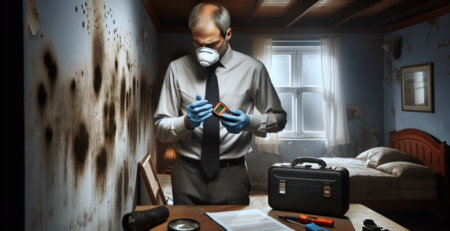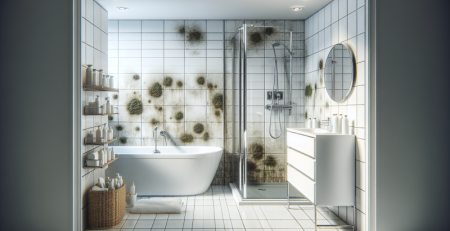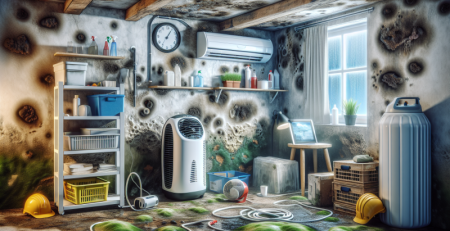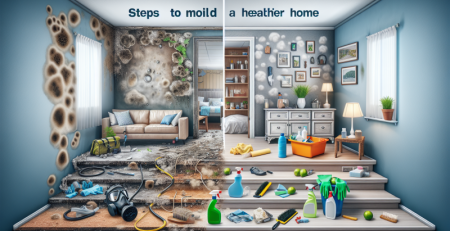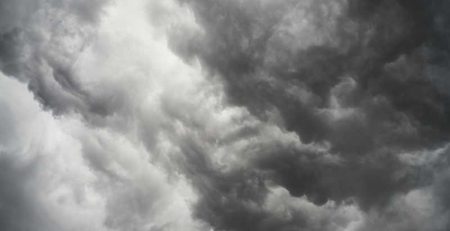The Role of Humidity in Mold Growth
Mold is a common problem that can affect homes and businesses alike, leading to significant health risks and property damage. One of the primary factors contributing to mold growth is humidity. Understanding the relationship between humidity and mold is crucial for effective mold prevention and remediation. In this comprehensive guide, we will explore how humidity influences mold growth, the conditions that promote mold proliferation, and the importance of professional restoration services in addressing mold issues.
Kraus Restoration is at the forefront of addressing these challenges, offering 24/7 emergency services and employing IICRC certified experts to ensure that your property is restored to its original condition. Whether you are dealing with water damage, mold cleanup, or fire damage repair in New Jersey, our team is ready to assist you.
Understanding Humidity and Its Effects
Humidity refers to the amount of moisture present in the air. It is typically measured as a percentage, known as relative humidity (RH). When the RH is high, the air is saturated with moisture, creating an environment conducive to mold growth. Mold spores are ubiquitous in the environment, and they require specific conditions to thrive.
The Science Behind Mold Growth
Mold spores can remain dormant until they encounter the right conditions, which include moisture, warmth, and organic material to feed on. According to the Environmental Protection Agency (EPA), mold can begin to grow within 24 to 48 hours of water exposure. This rapid growth underscores the importance of addressing water damage promptly.
In regions like New Jersey, where humidity levels can fluctuate significantly, understanding the local climate is essential for effective mold prevention. During the summer months, humidity levels can soar, creating ideal conditions for mold growth. Conversely, winter months may bring lower humidity levels, but indoor heating can create dry air that may not support mold growth.
Humidity Levels and Mold Types
Different types of mold thrive at various humidity levels. For instance, Aspergillus and Penicillium molds prefer higher humidity levels, while Cladosporium can grow in a wider range of conditions. Understanding the specific mold types prevalent in your area can help in developing targeted prevention strategies.
In Central and Northern New Jersey, homeowners and business owners should be particularly vigilant during the humid summer months. Implementing dehumidifiers and ensuring proper ventilation can significantly reduce indoor humidity levels, thereby minimizing the risk of mold growth.
The Impact of Water Damage on Humidity
Water damage is a primary catalyst for increased humidity levels in indoor environments. Whether from a burst pipe, flooding, or roof leaks, water intrusion can lead to elevated humidity levels that promote mold growth.
Water Damage Restoration in New Jersey
When faced with water damage, it is crucial to act quickly. Engaging professional restoration services can make a significant difference in mitigating damage and preventing mold growth. Kraus Restoration specializes in water damage restoration in New Jersey, ensuring that your property is dried and restored efficiently.
Our rapid response restoration team is equipped to handle emergencies, providing immediate assistance to minimize damage. By utilizing advanced drying techniques and equipment, we can effectively lower indoor humidity levels and prevent mold from taking hold.
The Role of IICRC Certified Experts
Working with IICRC certified experts ensures that your property is treated with the utmost care and expertise. These professionals are trained in the latest restoration techniques and understand the science behind mold growth and humidity control. They can assess your property, identify potential mold risks, and implement effective remediation strategies.
In addition to water damage restoration, our team also offers mold cleanup services in New Jersey. This comprehensive approach ensures that any existing mold is safely removed, and measures are put in place to prevent future growth.
Preventing Mold Growth Through Humidity Control
Controlling humidity levels is a proactive approach to preventing mold growth. Here are some strategies to consider:
1. Use Dehumidifiers
Dehumidifiers are effective tools for reducing indoor humidity levels. They work by extracting moisture from the air, making it less conducive for mold growth. In areas prone to high humidity, such as basements and bathrooms, using dehumidifiers can significantly reduce the risk of mold.
2. Improve Ventilation
Proper ventilation is essential for maintaining healthy humidity levels. Ensure that areas prone to moisture, such as kitchens and bathrooms, are well-ventilated. Installing exhaust fans can help remove excess moisture and improve air circulation.
3. Regular Maintenance
Regular maintenance of your property can prevent water damage and subsequent humidity issues. Check for leaks in plumbing, roofs, and windows, and address any issues promptly.
4. Monitor Indoor Humidity Levels
Investing in a hygrometer can help you monitor indoor humidity levels. Ideally, indoor humidity should be kept between 30% and 50%. If levels exceed this range, take action to reduce humidity through dehumidifiers or ventilation.
5. Professional Assessment
If you suspect mold growth or have experienced water damage, it is wise to seek a professional assessment. Kraus Restoration offers comprehensive property damage restoration services in New Jersey, ensuring that your home or business is safe and mold-free.
The Health Risks Associated with Mold
Mold growth can pose serious health risks to occupants of affected properties. Exposure to mold can lead to a variety of health issues, particularly for individuals with respiratory conditions, allergies, or weakened immune systems.
Common Health Effects
Some common health effects associated with mold exposure include:
- Allergic Reactions: Symptoms can include sneezing, runny nose, and skin rashes.
- Respiratory Issues: Mold can exacerbate asthma and other respiratory conditions.
- Infections: Individuals with compromised immune systems may be at risk for mold-related infections.
Protecting Your Health
To protect your health, it is essential to address mold issues promptly. Engaging in mold cleanup in New Jersey with the help of professionals can ensure that mold is safely removed and that your indoor environment is restored to a healthy state.
Kraus Restoration’s team of IICRC certified experts is trained to handle mold remediation safely and effectively. We understand the importance of creating a safe living environment for you and your family.
Conclusion
Humidity plays a critical role in mold growth, and understanding this relationship is essential for effective mold prevention and remediation. By controlling humidity levels, addressing water damage promptly, and engaging professional restoration services, you can significantly reduce the risk of mold in your property.
Kraus Restoration is committed to providing top-notch property damage restoration services in New Jersey. Our 24/7 emergency services ensure that we are always available to assist you in times of need. If you are facing water damage, mold issues, or fire damage, don’t hesitate to reach out to our team of experts. Call us today at (973) 886-2021 to learn more about how we can help restore your property and protect your health.
